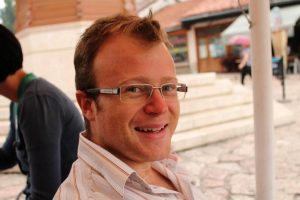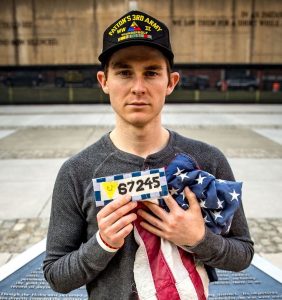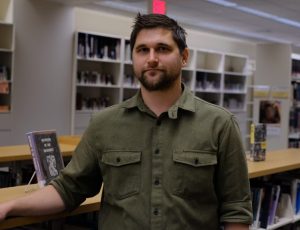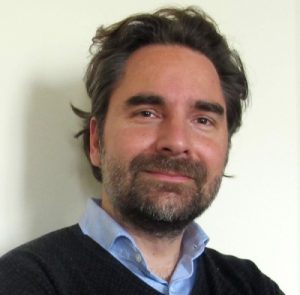
Richard S. A. Newell
Richard S. A. Newell is a co-founder of Aegis Trust affiliated Aegis Students (now STAND), and has spent several years working as an activist in
In 2017, the Post-Conflict Research Center (PCRC) and the United Nations Office on Genocide Prevention and the Responsibility to Protect (UNOGPRP) saw an opportunity to build upon the capacity and utility of the PCRC’s annual Genocide Prevention Seminars. Together, they established the Western Balkans Coalition for Genocide and Mass Atrocity Crimes Prevention (CGMAP) to connect and facilitate collaboration amongst participating civil society organizations as they develop and carry out programs that identify, assess, respond to, and prevent atrocities within their communities.
The regional collaboration we’ve seen since, supported by the international community, has given rise to a new optimism about confronting problems like corruption, discrimination, stereotyping, and hate speech.
Features of the Western Balkan Region’s political, social, and economic system that contributed to instability and wars of the 1990’s are still present, but it is the hope of all participating organizations that this collaborative platform and concurrent training sessions will be an asset in preventing future tension and conflict.
Since 2011, PCRC and UNOGPRP have trained and supported local organizations in monitoring risk factors associated with intergroup violence and mass atrocities. CGMAP expands the support we give to local conflict mitigation and prevention systems, and to organizations and coalitions who focus on preventing and stopping localized threats and manifestations of violence before they escalate.
Established in 2004, the UNOGPRP advances national and international efforts to protect populations from genocide, war crimes, ethnic cleansing and crimes against humanity. Their focus is to lessen the risk of atrocity and determine the appropriate action to stop crimes from occurring, halt those that are ongoing, and to discourage recurrence by punishing those responsible. Their office in New York City collects information, assesses fragile situations worldwide, and alerts relevant actors to the risk of atrocities. They also participate in training and provide technical assistance to promote greater understanding of the causes and dynamics of crimes against humanity and how they can be prevented. For more information, please visit: http://www.un.org/en/genocideprevention/
The Post-Conflict Research Center, founded in 2010, is a grassroots NGO based in Sarajevo, Bosnia and Herzegovina. They are dedicated to restoring a culture of peace and preventing violent conflict and radicalization in BiH and the Western Balkans. PCRC creates, implements and supports unconventional and innovative approaches to peace education, post-conflict research, human rights and transitional justice, the prevention of genocide and mass atrocities, and creative arts and multimedia. PCRC strives for a society where people no longer perceive diversity as a source of conflict, but as the basis for prosperity. They are committed to establishing an environment where human rights are respected and the principles of transparency, accountability and the rule of law are upheld to support a healthy democracy. As part of their work, they have made 7 documentaries featured in al Jazeera Balkans, PBS and UN Web TV reaching 1.4 million viewers in the Balkans and 370 million viewers worldwide. For more information, please visit: http://www.p-crc.org
The Western Balkans Coalition for Genocide and Mass Atrocity Crimes Prevention (CGMAP) is a regional, inclusive, civil society-led initiative to prevent atrocities (genocide, war crimes, ethnic cleansing, and crimes against humanity).
The CGMAP initiative was first undertaken by The Post-Conflict Research Center (PCRC) and the United Nations Office for Genocide Prevention and the Responsibility to Protect (UNOSAPG) in 2017.
Since then, CGMAP has become a collaborative coalition of over 20 leading civil society organizations (CSOs) who are conducting programs in genocide prevention and the reduction of ethnic-based violence in the Western Balkans Region.
CGMAP provides a regional platform for exchange and dialogue between CSOs, regional governments, and the international community.
Mission: To increase the capacity of civil society organizations working in the Western Balkans Region in the fields of human rights, reconciliation, peacebuilding and transitional justice; thereby increasing their ability to prevent, identify, and respond to atrocities (genocide, war crimes, ethnic cleansing, and crimes against humanity).
Vision: We believe that securing impartial, objective, and independent transitional justice mechanisms is of the utmost importance for post-conflict recovery and the prevention of future human rights abuses. We believe that undertaking this work both locally and regionally is the only way to create sustainable and prosperous post-conflict societies, which ultimately reflect these values.
We work to achieve this by the following objectives:
CGMAP’s advisory board is comprised of academics, experts and researchers who work in the fields of Genocide and Holocaust Studies and Conflict Prevention. The advisory board keeps us abreast of the latest developments in the field of Genocide Prevention. They also foster relationships between CGMAP and other practitioners, experts and stakeholders across the globe.

Richard S. A. Newell is a co-founder of Aegis Trust affiliated Aegis Students (now STAND), and has spent several years working as an activist in

David Simon is the Director of the Genocide Studies Program at Yale University and holds the position of Senior Lecturer in the Department of Political

Dr Melanie O’Brien is an Associate Professor of International Law at the University of Western Australia and an award-winning teacher of International Humanitarian Law, Public International

Ellen J. Kennedy, Ph.D., is the founder and Executive Director of World without Genocide, which provides education about past and current conflicts and advocates at

David Estrin is the founder and CEO of Together We Remember, a nonprofit dedicated to empowering the next generation of leaders to make “never again”

Dr. Hikmet Karčić is a genocide scholar based in Sarajevo, Bosnia and Herzegovina. He is a Researcher at the Institute for Islamic Tradition of Bosniaks

Thomas Unger is the Co-Director of the Master of Advanced Studies in Transitional Justice, Human Rights and the Rule of Law. He is the former
MAIN CONTACT POINT AND ORGANIZING INSTITUTION:
Post-Conflict Research Center (PCRC)
Pruščakova 21, 71000 Sarajevo, Bosnia and Herzegovina
Phone: +387 (0)61 274 997
General inquiries:
[email protected]
For information about becoming a member or taking part in our activities:
[email protected]
Thank you!
© CGMAP.ORG 2020
Post-Conflict Research Center (PCRC)
Pruščakova 21, 71000 Sarajevo, Bosnia and Herzegovina
Phone: +387 (0)61 274 997
General inquiries:
[email protected]
For information about becoming a member or taking part in our activities:
[email protected]